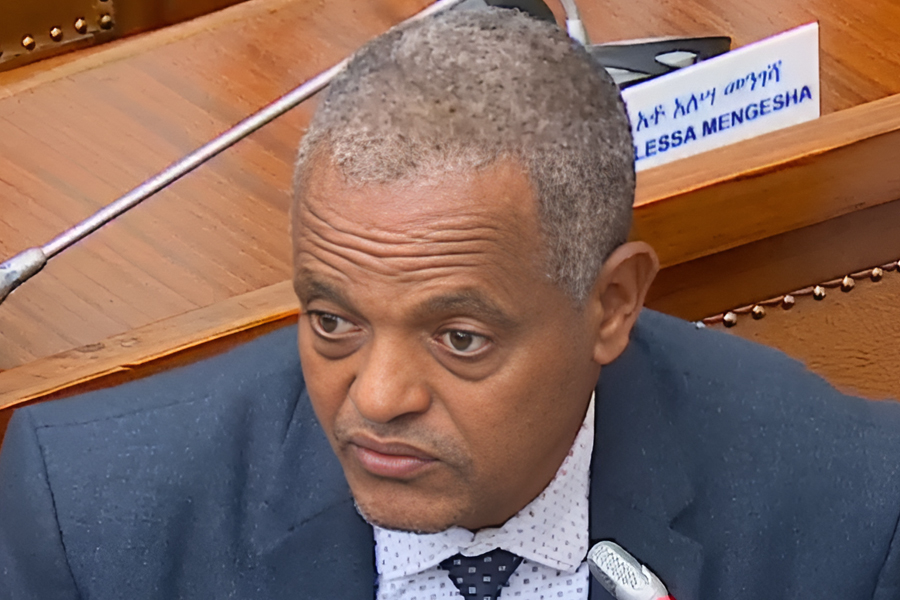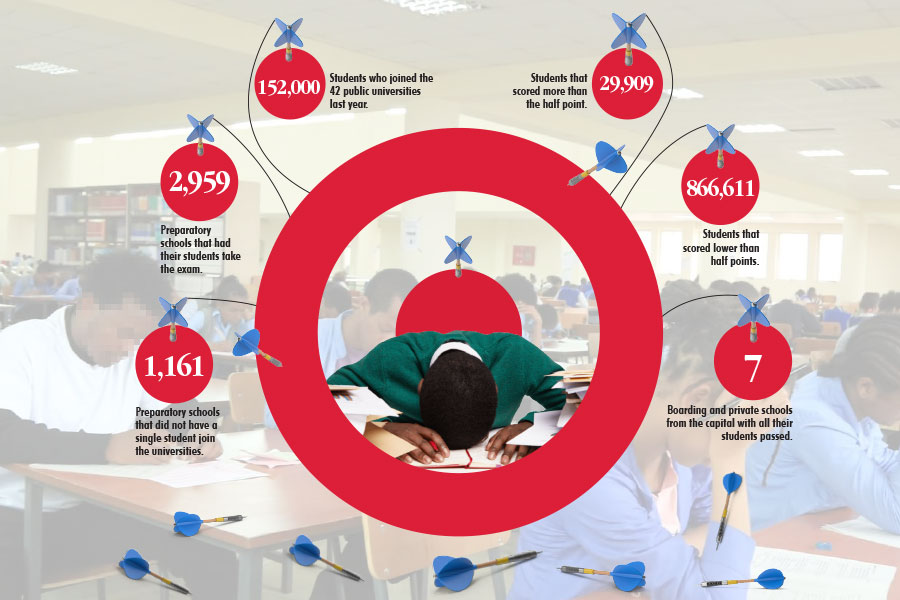
Apr 28 , 2024
By Yonas Zewdie
In the East and Horn of Africa, a region including 18 countries, migration patterns are profoundly influenced by challenges ranging from armed conflicts and political instability to environmental degradation, climate change, and scarce economic opportunities. This geographic expanse serves as a source, transit, and destination for migrants, recording 7.7 million international migrants as of 2020. The convoluted web of movement includes migrant workers, asylum seekers, and refugees who often follow similar pathways — be it the eastern route leading to Yemen and the Gulf, the southern route heading towards South Africa, or the northern passage towards North Africa and Europe.
Migrant workers from this region find themselves predominantly in low-skilled employment in destination countries due to several hurdles, including unrecognised qualifications and limited proficiency in the local languages of their new homes. These barriers are compounded by insufficient access to quality education and vocational training that aligns with the demands of their destination countries. For those with irregular status, the challenges are even more pronounced. Legal restrictions often limit them to informal sectors where they are vulnerable to exploitation. Employers in these sectors may leverage the migrants' lack of legal status to offer low wages and substandard working conditions without adequate legal protections.
Despite their contributions to the labour markets in their host countries, migrant workers often face marginalisation. The lack of social and legal protection exposes them to various forms of exploitation, including long working hours and unsafe working conditions, without sufficient legal recourse. The precarious nature of their legal status heightens their vulnerability, leaving them susceptible to abuses that they are often too fearful to report due to the potential repercussions such as deportation.
Social protection policies are crucial in addressing these vulnerabilities.
Social protection, as defined, includes access to healthcare, income security, and family support, ensuring a safety net that guards against poverty and social exclusion. However, substantial gaps in coverage exist worldwide. According to the International Labour Organization (ILO), four billion people globally lack social protection, with only 29pc of the world's population having adequate social security coverage and 55pc completely uncovered.
For migrant workers, the limitations in accessing social protection are compounded by legal and practical barriers. These include restrictions based on their nationality or status, short durations of employment, and the complexities involved in the portability of social benefits across borders. These issues are recognised in international frameworks such as the 2018 Global Compact for Safe, Orderly and Regular Migration, which emphasises the importance of ensuring social protection for migrant workers.
The framework argues for the imperative of extending social protection to migrant workers. Such measures not only safeguard their rights but also enhance their well-being by providing access to essential services such as healthcare and education, irrespective of their nationality or migration status. Addressing the unique challenges faced by migrant workers, particularly those in low-skilled and informal sectors, requires comprehensive legislation and administrative measures that do not discriminate against them.
Efforts to ensure social protection for migrant workers must include various strategies. Countries of origin and destination are encouraged to ratify and implement relevant ILO conventions and recommendations, develop national policies that include social protection floors for all, including migrant workers, and enforce social security agreements that coordinate social security systems across borders. Bilateral labour agreements and memorandums of understanding should incorporate social security provisions to further these goals.
These legislative and administrative initiatives should remove the barriers migrant workers face in accessing social protection. This includes addressing the discrimination inherent in existing laws and ensuring compliance with social security laws. Raising awareness among migrant workers about their rights and entitlements is crucial for empowering them to advocate for themselves effectively.
Comprehensive and inclusive social protection policies are urgently needed to uphold the dignity and rights of migrant workers. These policies contribute to the broader goals of reducing poverty and inequality, as outlined in the UN 2030 Agenda for Sustainable Development (SDGs). Such policies are essential not only for protecting migrant workers but also for realising a more equitable and sustainable global society .
PUBLISHED ON
Apr 28,2024 [ VOL
25 , NO
1252]


View From Arada | Jun 14,2025

Radar | Aug 26,2023

Commentaries | Oct 03,2024

Verbatim | Jun 22,2024

Fortune News | Feb 04,2023

My Opinion | Jul 18,2021

Radar | Aug 05,2023

Commentaries | Aug 21,2021

Viewpoints | Dec 21,2019

Advertorials | Sep 05,2024

Photo Gallery | 176603 Views | May 06,2019

Photo Gallery | 166813 Views | Apr 26,2019

Photo Gallery | 157353 Views | Oct 06,2021

My Opinion | 136925 Views | Aug 14,2021

Dec 22 , 2024 . By TIZITA SHEWAFERAW
Charged with transforming colossal state-owned enterprises into modern and competitiv...

Aug 18 , 2024 . By AKSAH ITALO
Although predictable Yonas Zerihun's job in the ride-hailing service is not immune to...

Jul 28 , 2024 . By TIZITA SHEWAFERAW
Unhabitual, perhaps too many, Samuel Gebreyohannes, 38, used to occasionally enjoy a couple of beers at breakfast. However, he recently swit...

Jul 13 , 2024 . By AKSAH ITALO
Investors who rely on tractors, trucks, and field vehicles for commuting, transporting commodities, and f...

Oct 18 , 2025
The political establishment, notably the ruling party and its top brass, has become p...

Oct 11 , 2025
Ladislas Farago, a roving Associated Press (AP) correspondent, arrived in Ethiopia in...

Oct 4 , 2025
Eyob Tekalegn (PhD) had been in the Governor's chair for only weeks when, on Septembe...

Sep 27 , 2025
Four years into an experiment with “shock therapy” in education, the national moo...

Oct 18 , 2025 . By NAHOM AYELE
In a sweeping reform that upends nearly a decade of uniform health insurance contribu...

A bill that could transform the nutritional state sits in a limbo, even as the countr...

Oct 18 , 2025 . By SURAFEL MULUGETA
A long-planned directive to curb carbon emissions from fossil-fuel-powered vehicles h...

Oct 18 , 2025 . By BEZAWIT HULUAGER
Transaction advisors working with companies that hold over a quarter of a billion Bir...